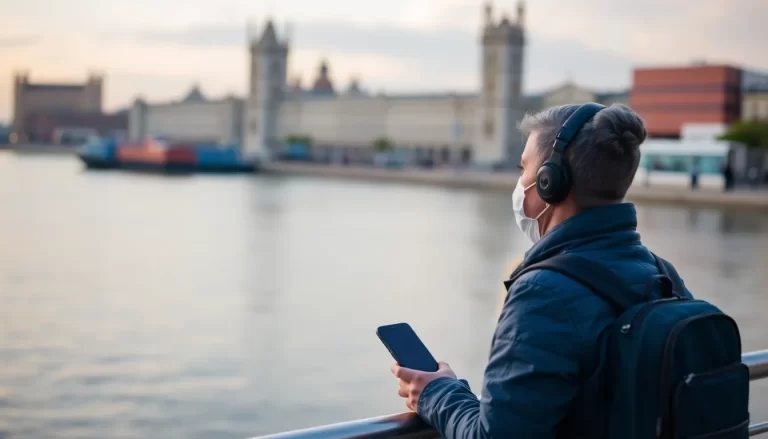In a world where work often takes precedence over leisure, the concept of travel has become entangled with the idea of vacation. Many perceive travel as a luxury reserved for those with ample free time or financial means. Yet, a deeper understanding reveals that travel is more of a mindset, a way to explore the world and ourselves, rather than merely a scheduled break from routine. The narrative surrounding travel and vacations warrants a closer examination, shedding light on the varied experiences that can enrich our lives.
Understanding travel and vacations
The terms «travel» and «vacation» are frequently used interchangeably, yet they embody different concepts. Generally, vacations are short, planned periods of leisure intended to provide a break from work and daily responsibilities. Conversely, travel encompasses a broader scope of exploration, adventure, and cultural immersion, often transcending the confines of time.
Traditionally, vacations have been heavily commercialized, often leading individuals to associate them with resorts, theme parks, or family gatherings. Such experiences, while enjoyable, may not capture the essence of true exploration. Travel, on the other hand, invites a sense of adventure and curiosity, urging individuals to step outside their comfort zones.
The benefits of going on a trip
Taking time off to travel can have profound effects on both mental and physical health. The benefits of engaging in travel extend beyond mere relaxation; they include:
- Stress relief: Escaping the daily grind can significantly reduce stress levels, promoting mental clarity.
- Enhanced creativity: Exposure to new cultures and experiences can ignite creativity and inspire fresh ideas.
- Improved relationships: Shared travel experiences can strengthen bonds between friends and family.
- Personal growth: Travel often challenges individuals to navigate unfamiliar environments, fostering resilience and adaptability.
- Physical health benefits: Engaging in physical activities while traveling, such as hiking or walking tours, promotes overall wellness.
Not taking vacation time: what’s at stake?
Many individuals forgo their vacation time, often due to workplace pressures or a belief that their absence will burden colleagues. However, the consequences of neglecting to take time off can be detrimental:
- Burnout: Continuous work without breaks can lead to physical and emotional exhaustion.
- Decreased productivity: Ironically, working without respite can diminish overall efficiency and output.
- Health issues: Prolonged stress can contribute to various health complications, including cardiovascular problems.
- Impaired creativity: A lack of new experiences can stifle innovative thinking.
Taking time off is essential not just for individual well-being, but also for fostering a healthy workplace culture.
Does going on vacation relieve stress?
Research supports the notion that vacations can significantly alleviate stress. The anticipation of a trip can elevate mood and boost happiness. Once on vacation, individuals report feeling less anxious and more relaxed. Moreover, the act of disconnecting from work responsibilities allows for mental rejuvenation.
Interestingly, a study by the U.S. Travel Association found that those who take vacations regularly are less likely to experience burnout. This suggests that even short breaks from routine can yield considerable mental health benefits.
The data-driven case for vacation
Data shows that taking vacations can lead to improved job satisfaction and overall life satisfaction. In countries with more generous vacation policies, employees report higher levels of happiness and productivity. For instance, European nations often mandate several weeks of vacation for workers, contributing to a healthier work-life balance.
According to the American Psychological Association, taking vacations can also enhance physical health, with studies indicating that men who do not take vacations are 30% more likely to suffer from a heart attack. These statistics underscore the importance of prioritizing time off as a means of preserving health and well-being.
Can shorter work hours or longer vacations lead to greater happiness?
The debate over whether shorter work hours or extended vacations contribute more to happiness is ongoing. Some argue that reducing work hours can lead to a more balanced lifestyle, providing opportunities for personal pursuits and leisure. On the other hand, longer vacations are seen as essential for rejuvenation and exploration.
Ultimately, a combination of both may be ideal. Shorter work hours can allow for frequent mini-vacations, while longer vacations can offer deep immersion into new experiences. The key lies in finding a balance that suits individual preferences and lifestyles.
Why could taking vacation time save your life?
Taking vacation time is not just about relaxation; it can have life-saving implications. Studies consistently show that regular vacations can lower stress levels, reduce the risk of cardiovascular diseases, and enhance overall longevity. By prioritizing well-being through time off, individuals may significantly improve their quality of life.
Furthermore, the experiences gained during travel often lead to healthier lifestyle choices. Many travelers return home with a renewed sense of purpose, inspiring them to adopt healthier habits that can contribute to a longer, more fulfilling life.
Are people traveling less in 2025?
As global circumstances evolve, one might wonder about travel trends in the near future. Factors such as economic conditions, environmental concerns, and public health can influence travel behavior. While some predict a surge in domestic travel as people seek safer options, others anticipate a return to international exploration as restrictions lift.
Ultimately, the future of travel will likely hinge on adaptability. As travelers become more mindful of their impact on the environment and local cultures, a shift towards sustainable and responsible travel practices may emerge.
Is going on vacation good for your mental health?
The psychological benefits of vacations are well-documented. Time away from everyday stressors can provide individuals with the opportunity to recharge and gain perspective. Engaging with different cultures and environments fosters open-mindedness and can lead to greater empathy.
Moreover, vacations often create lasting memories and shared experiences, which can strengthen relationships and foster a sense of belonging. By stepping outside familiar surroundings, individuals can discover new aspects of themselves and grow in ways they may not have anticipated.
Traveling with purpose: redefining your journey
One of the most enriching aspects of travel is the opportunity to engage with local cultures and communities. Travelers can enhance their experiences by participating in activities that promote cultural exchange and understanding. Examples include:
- Volunteering: Contributing to community projects can create meaningful connections.
- Culinary experiences: Taking cooking classes or dining with locals can provide insight into traditional practices.
- Nature excursions: Participating in eco-tours allows travelers to appreciate and protect natural environments.
These purposeful interactions can transform the travel experience, making it more enriching and memorable.
Embracing the traveler mindset
To truly embrace the essence of travel, one must adopt a flexible and open mindset. Instead of adhering strictly to itineraries, travelers should allow themselves to explore and discover organically. This can lead to unexpected adventures and deeper connections with the destination.
Whether it’s wandering through a local market, joining a spontaneous festival, or engaging in conversations with locals, these experiences often yield the most cherished memories. Travel should not be confined to a checklist of “must-see” attractions but rather embraced as an opportunity for personal growth and exploration.
Practical tips for planning your next adventure
Planning a trip can be daunting, but with the right strategies, it can become an exciting process:
- Set a budget: Determine how much you are willing to spend on your trip to guide your decisions.
- Research destinations: Explore potential locations that align with your interests and preferences.
- Be flexible: Allow for spontaneous changes in your itinerary to enhance your travel experience.
Utilizing these tips can help streamline the planning process, enabling you to focus on the experience itself rather than the logistics.







